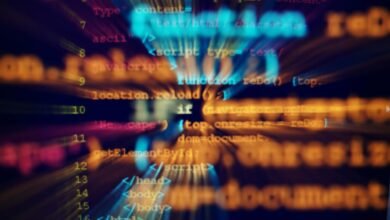Why Learning to Code Is Essential in the AI Era

▼ Summary
– Cursor, an AI-native code editor, generates nearly one billion lines of code daily, equivalent to the output of about a million human developers.
– Despite concerns, the demand for software is insatiable and elastic, meaning cheaper software creation will likely increase overall demand for coding skills.
– AI-assisted coding tools represent an evolution in software development, similar to past advancements that boosted both engineer numbers and individual productivity.
– These tools are expected to expand the pool of software creators to include professionals like lawyers and doctors, rather than replacing existing engineers.
– The article references related developments, including changes in programming language rankings and employment impacts from AI in fields like software engineering.
The demand for skilled individuals who can write and understand code is surging, not shrinking, in this new age of artificial intelligence. While AI-powered tools now generate staggering amounts of code daily, this technological leap actually amplifies the need for human expertise. The ability to code remains an incredibly valuable and sought-after skill, acting as a fundamental form of literacy for navigating and shaping our digital future. The real shift is in how we apply this skill, using AI as a powerful collaborator rather than seeing it as a replacement.
Consider the sheer volume of code that AI assistants can now produce. One popular AI-native editor reportedly generates close to a billion lines of accepted code every day. To put that in perspective, if an experienced engineer writes a thousand lines in a day, the AI is performing work equivalent to a million developers. With a global population of software developers estimated at around 25 million, it’s easy to jump to the conclusion that human coders are becoming obsolete.
However, that fear-based view overlooks some crucial realities. The world’s appetite for new software and digital solutions is practically limitless. Getting computers to execute our commands correctly, the very essence of programming, holds immense economic value. For decades, the number of people with the specialized ability to communicate with machines has been a bottleneck. If AI tools enable us to create more functional code more efficiently, then a far wider range of people, companies, and entire industries can benefit. As software becomes cheaper and easier to produce, we see a disproportionately large surge in demand for it. There is no such thing as a finished software project; human creativity constantly invents new needs and services that software will inevitably fulfill.
This evolution towards AI-assisted programming is simply the latest chapter in the ongoing story of software development. Decades ago, programmers used punch cards, then moved to writing low-level code on keyboards, and later advanced to high-level languages. Each of these transitions led to a significant increase in the total number of software engineers while simultaneously boosting individual productivity. AI represents the next step in this progression, a tool that grants us new superpowers.
Tools like these are less about replacing existing software engineers and more about dramatically expanding the pool of people who can build software. In the coming years, writing code will not be confined to those with a formal job title like “software developer.” Professionals such as lawyers, accountants, and doctors will increasingly develop custom software solutions for their specific fields. The goal is not to displace the millions of engineers we have today, but to empower millions more to join their ranks.
The growing influence of AI is also changing how we measure the coding landscape. Traditional metrics, like search engine queries for specific languages, are becoming less reliable as developers turn to AI assistants. This shift raises important questions about how we will track the popularity and use of programming languages in the future.
Concurrently, early research is examining AI’s impact on the job market. One study using payroll data suggests that employment for younger workers in occupations that heavily use generative AI, including software engineering, may be experiencing some initial effects.
In a separate development affecting the tech talent pool, a recent policy change has imposed a substantial new fee on certain visa petitions commonly used by major technology companies and some academic institutions to hire specialized international workers. This could influence how organizations access global programming talent.
(Source: Spectrum IEEE)





